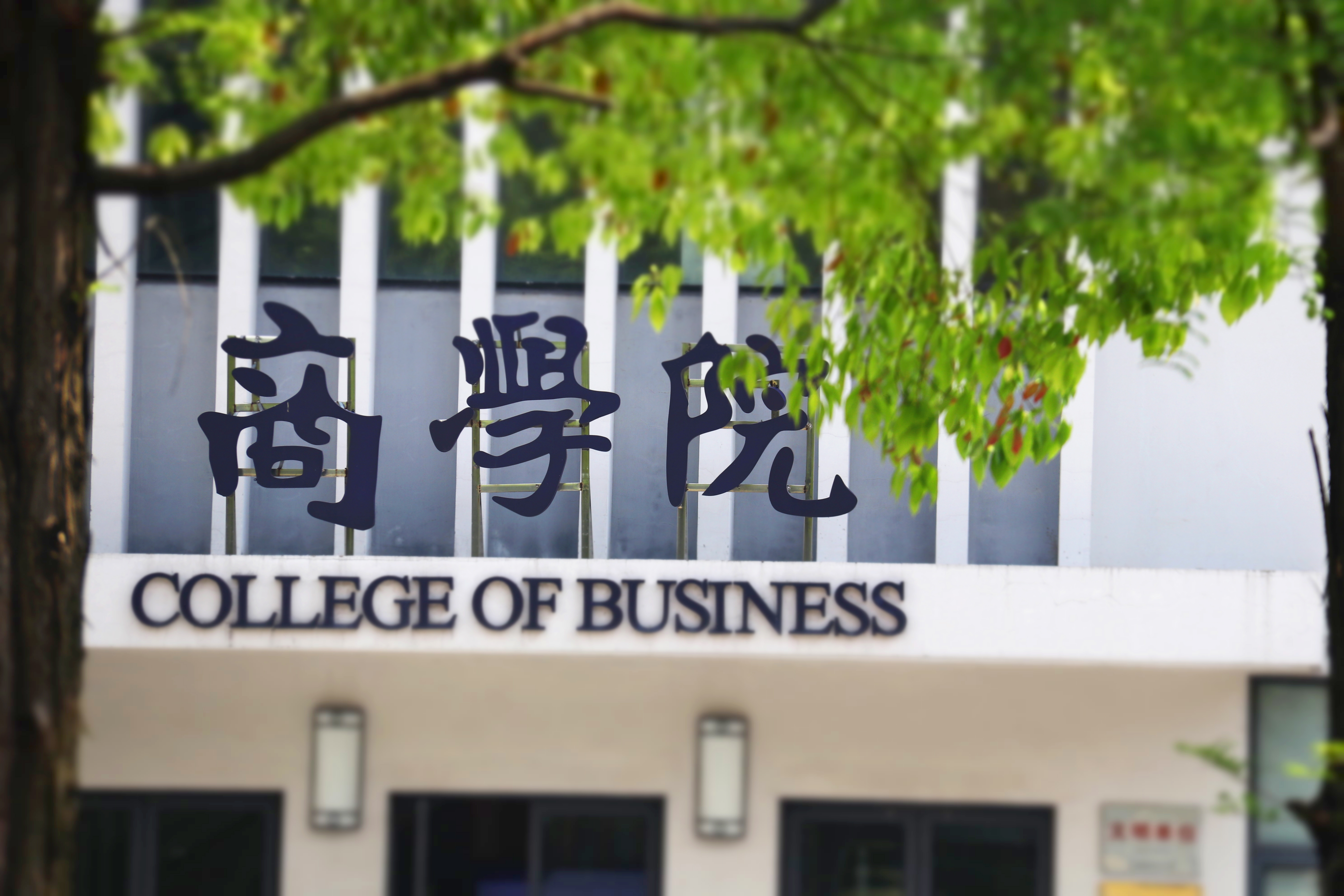2021 is an important year in term of the 30th anniversary of MBA Education in China. The first to four batches of MBA institutions have accumulated more than 20 years of MBA teaching experience. In accordance with the 2021 work plan of the National Steering Committee for graduate education with a degree in business administration, and in order to fully implement the spirit of the National Conference on graduate education, we have vigorously explored multiple ways to integrate industry with education. To enhance the extent, MBA education serves the frontier demand of the economy and society, promotes MBA education innovation, and leads the development.
On June 10, the first to the fourth batch of national MBA Dean Work Communication conference was successfully held at the Shanghai University of Finance and Economics. The conference, with the theme of “the symbiotic development of new economy and new business in the age of digital intelligence”, was hosted by the National Steering Committee for graduate education in Business Administration and Shanghai University of Finance and Economics.
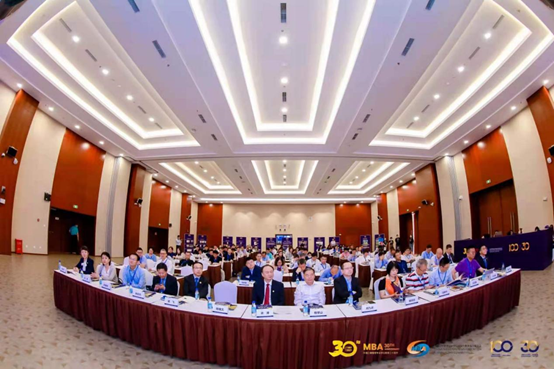
Event site
Attending the main forum of the conference was: Yang Xueshan, former Vice Minister of the Ministry of Industry and Information Technology; Xu Tao, Chair of the Shanghai University of Finance and Economics Council; Xu Fei, National MBA Education Committee Member and Executive Vice President of the Shanghai University of Finance and Economics; Chen Xinyuan, Vice President of the Shanghai University of Finance and Economics; Lu Xiongwen, Vice Chairman of the National MBA Education Commission and Dean of the School of Management of Fudan University, and Wang Ping, Director of the Secretariat of the Office of the National MBA Education Steering Committee, Liu Jiuping, President of Shanghai Big Data Co. , Ltd. and Director of Shanghai Digital Governance Research Institute, as well as deans and faculty members of Management and Business Studies schools in the first to fourth batches of MBA programs.
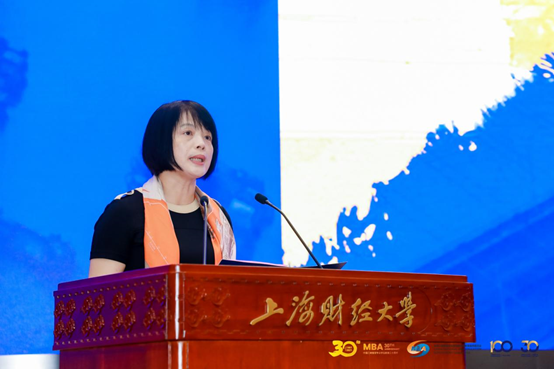
Yao Lingzhen, Vice President of Shanghai University of Finance and Economics
The speech session was hosted by Yao Lingzhen, Vice President of Shanghai University of Finance and Economics.
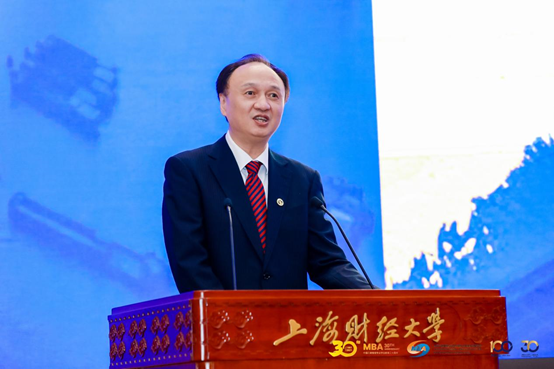
Xu Tao, Chair of the Shanghai University of Finance and Economics Council
The Chair of the Shanghai University of Finance and Economics Council, Xu Tao firstly extended a cordial welcome to the guests on behalf of the Shanghai University of Finance and Economics. Xu Tao said that during the construction of MBA schools, the first to the fourth batches of MBA training schools have accumulated over 20 years of teaching experience, actively explored aspects like discipline opening with tutoring system, and achieved remarkable results. The schools receive international influence & growing gradually, have cultivated a considerable number of high-level industrial and commercial management talents who are efficient in the management theory and the innovation practice. They have delivered an outstanding contribution to national economic and social development. He pointed out that Shanghai University of Finance and Economics MBA Education and the Chinese MBA education originated in the same year. Since the foundation of the school at Shanghai University of Finance and Economics have continued serving the country and national development through the economy and business outcomes as a determined pursuit of the school. At present, Shanghai University of Finance and Economics has embarked on a new journey to build a world-class university with distinctive financial and economic characteristics, which is making contributions to the materialization of the great dream of national prosperity and revitalization.
As one of the nation’s first pilot MBA programs, the Shanghai University of Finance and Economics has consumed 30 years exploring the path of an excellent master’s program. Shanghai University of Finance and Economics positioned 64th in the world’s top 100 university QS ranking and the 4th in the Chinese mainland for 2022 MBA programs. Xu stressed that in the future, Shanghai University of Finance and Economics would offer intensive support to the business school in terms of an innovative teaching environment to build a “world-class business school” by 2050.
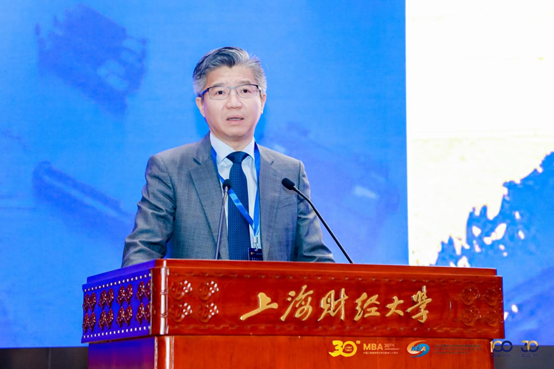
Vice-Chairman of the National MBA Education and Guidance Commission
Lu Xiongwen, Dean of the School of Management of Fudan University
Lu Xiongwen, Vice-Chairman of the National MBA Education Commission and Dean of the School of Management of Fudan University, delivered a speech asserting the importance of the meeting. He pointed out that in the past 30 years, China’s management education has made great achievements, which is admired by the whole world. This is inseparable from the substantial cooperation we secure in a persistent collaboration with our global counterparts. In view of the development of management education, President Lu made the following remarks:
In the beginning, the development of management education in China has great space and potential;
Second, no matter of global economic situation or from China’s domestic economic development, management studies immediately needs to develop;
Third, in the past 30 years, China’s MBA and EMBA education experienced a similar path experienced by western developed countries over 50 or 70 years back. There is a handful of exploration and action to the quality with rapid economic development.
Based on this, Lu called on the National School of Management and Business Schools to jointly explore the development opportunities for Chinese MBA and jointly promote national economic development breaking through barriers .
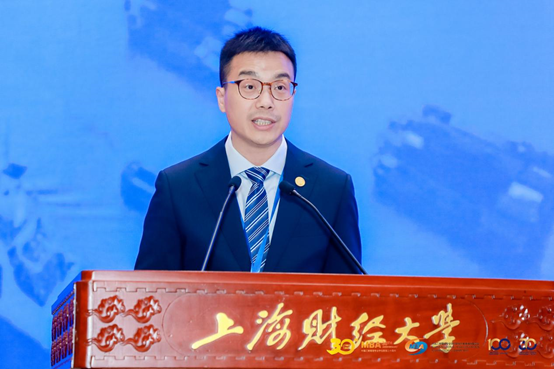
Wei Hang, Associate Executive Dean of the Business School of Shanghai University of Finance and Economics
The main forum was hosted by Wei Hang, Associate Executive Dean of the Business School of Shanghai University of Finance and Economics.
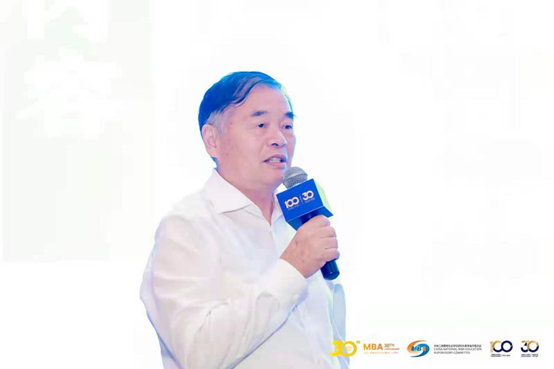
Yang Xueshan, former Vice Minister of the Ministry of Industry and Information Technology
Yang Xueshan, former Vice Minister of the Ministry of Industry and Information Technology, delivered a keynote speech on the topic entitled“Thinking on the theoretical research of digital economy”, introducing the development of the course of the digital economy for everyone, and explain the concrete significance of digital economy from three subject-matters: resources, capital, and asset. He said that digital economy continuously realized its value from work, heritage, and influence. The worker, connection mechanism, and digital quality are three essential factors that form digital value. Rights to the digital economy include ownership, use, and management claim.
Minister Yang pointed out that the existing economic theory research cannot fully explain the digital economy, but the new economic form is rapidly appearing before academic experts and we should consider how to think of digital economy from an economic perspective providing huge confidence for management school. The business school ought to engage in theoretical research for subsequent digital economic development.
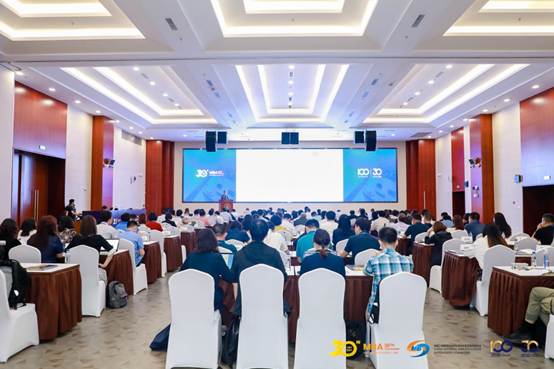
Vice-chairman of the National MBA Education and Guidance Commission
Lu Xiongwen, Dean of the School of Management of Fudan University
Lu Xiongwen, Vice Chairman of the National MBA Education and Guidance Commission and Dean of the School of Management of Fudan University delivered a keynote speech on the theme of “The future-oriented school of Management: mission, boundary, and path”. Lu before all else introduced the challenges and opportunities of the School of Management around the world and summed up the mission, boundaries, and growth path of the future School of Management. The global economy has entered the era of VUCA with fierce competition in Management Studies, interdisciplinary infiltration, and integration. The “erosion” of the internet system and the upgrading of alternatives have all deconstructed the conventional business model. Simultaneously, recent opportunities are opening up for management schools around the world. Business schools in our country must make leading development in the viewpoint of thoughts, theory, and talent cultivation. Lu pointed out that the development of business schools should follow the principles of organic growth, ecological expansion, and convergence for the future.
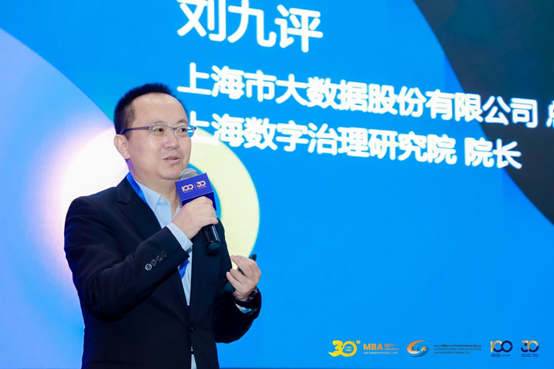
Liu Jiuping, President of Shanghai Big Data Co. , Ltd. and President of Shanghai Digital Governance Research Institute
Liu Jiuping, President of Shanghai Big Data Co. , Ltd. and Director of Shanghai Digital Governance Research Institute, introduced the opportunities and challenges of the big data era, as well as the data science mindset and the forthcoming trend of data talent cultivation. Liu said that the global big data market is rapidly developing and thanks to the rapid development of the Internet facilities. China’s overall data storage and data centers have both reached new heights, and the big data industrial chain has basically taken shape. Data application has been extended to various dimensions including “economy, life, and urban governance”.
With the digital transformation of state-owned enterprises, the big data market in China is availing a new opportunity and it will have to pass along the path from“New infrastructure” to “Application service”. After the post-epidemic economic restart, digital talent demands an overall upgrade with hefty growth. He suggests that business schools should grasp the big data era to initiate a composite business elite class with a data mindset.

Xu Fei, Member of the National MBA Teaching Committee and Executive Vice President of the Shanghai University of Finance and Economics
Xu Fei, Member of the National MBA Teaching Committee and Executive Vice President of the Shanghai University of Finance and Economics, introduced the new liberal arts and contemporary business structure in the age of digital and intelligent economy from the Information revolution. Xu proposed the concept of “New liberal arts”, and explained the “new” from five dimensions: domain expansion, value remolding, discourse leading, cross-fusion, and research paradigm. He said that the new liberal arts and new business should include a new orientation, a new concept, a new system, a new model, a new theory, a new standard, a new major, and a new curriculum. It should not overlook the original, absorb from the outside and should cope with the future and sustain positive innovation.
A gentleman enjoys money and takes it wisely. He should not make money generating the capital of human weakness. The high-quality development of the country’s economy cannot be lacing in entrepreneurship, Xu said. Entrepreneurship has seven dimensions: innovation, risk-taking, cooperation, dedication, learning, persistence, and integrity. He explained the development ways of prospective new liberal arts and new business from the viewpoints of mission and training goals. He also pointed out that business schools should speed up the training of high-quality international talents with global vision, Chinese position, and vast knowledge of international rules.
On June 10 afternoon, two sub-forums, “Integration of Industry and education, symbiotic development”and “Building a foundation of disciplines, innovative development”, were held simultaneously.
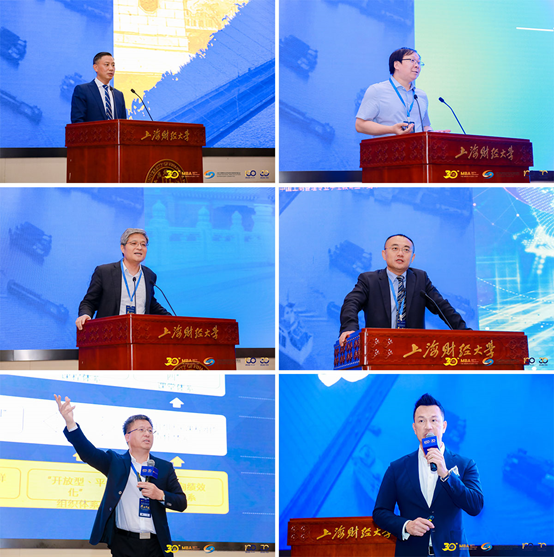
The sub-forum on the integration and development of industry and education is hosted by Huang Haiqing, CEO of Detuo information, and Ji Xinhua, founder, chairman and CEO of UCloud, Chen Fangruo, vice chairman of the National MBA Education and Guidance Commission and Dean of Antai School of Economics and Management of the Shanghai Jiao Tong University, Qu Shaoguang, general manager of the National Financial Technology Assessment Center (NFTC) , Wei Jiang, dean of the School of Management at Zhejiang University, and Yang Yihua, Boston Consulting Group Managing Director and Global Partner attended the sub-forum and delivered a keynote speech, discussing the relationship between industry development and talent cultivation, giving an in-depth description of the important role that business education plays in China’s economic and industrial development.
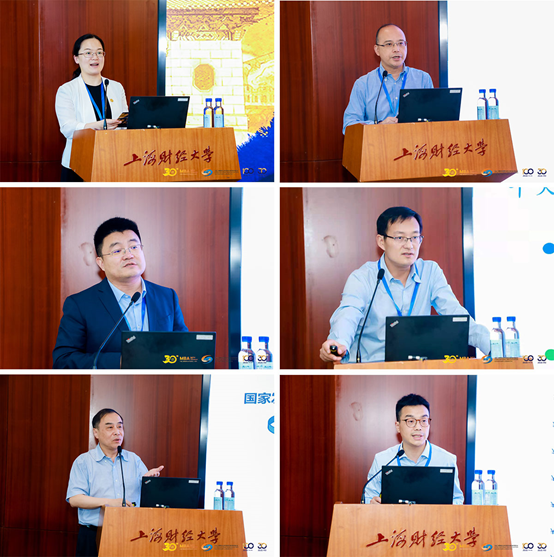
The “building a foundation of disciplines, innovative development” sub-forum was hosted by Dong Jing, COB Associate Dean of the Shanghai University of Finance and Economics, and Song Hua, Vice Dean of the Business School of Renmin University of China, Wu Zhenlei, Vice President of Northwestern University, Chen Deqiu, Member of the National MBA Teaching Committee and Executive Dean of the Beijing University of International Business and Economics, Li Yuan, Dean of the School of Economics and management at Tongji University, and Wei Hang, COB Associate Executive Dean of the Shanghai University of Finance and Economics, delivered a keynote speech at the sub-forum. In terms of the rapid development of a digital era, the discussion was held on how business education should develop with innovation, an original foundation that provides a reference for the digital era of the development and construction of MBA Education.
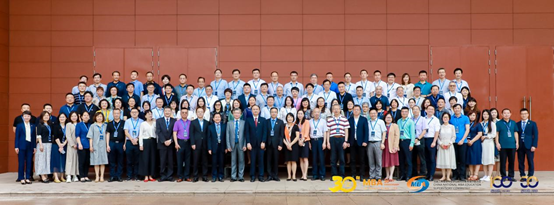
Take a picture
As the first professional master’s degree program, MBA education has cultivated a large number of high-level talents who are efficient in modern business expertise and management practice in the past 30 years and made significant contributions to national economic development and social progress. At present, our country’s business education should serve the strategic needs to fulfilling the fundamental task of establishing morality and fostering people to uphold the stage of our new journey of establishing a modern and all-around socialist country . We should integrate innovation, deepen cultivation, improve education level, and cultivate quality in an all-round way. We should provide widespread support for the high-end development of society and the economy.
So far, the symbiosis development of new economy and new business in the age of mathematics and intelligence — the conference has been successfully concluded. It is expected that the intense exchange and interaction in this conference will promote thinking, enlightenment, and guidance to the anticipated development of business education and MBA to promote the prosperity and development of new business.

